
Departure in IT sector essential for national prosperity, asserts Minister Sharma
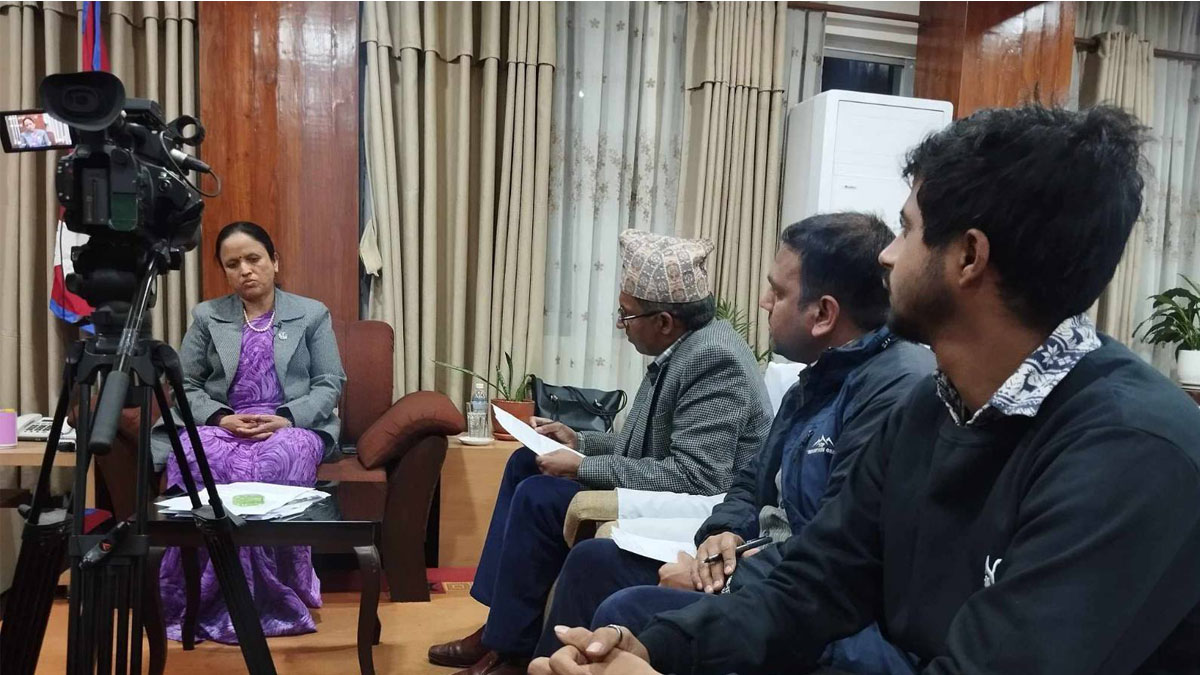
It has been a year since the present government led by Prime Minister Pushpa Kamal Dahal ‘Prachanda’ assumed office.
The government has accorded high priority to enforcement of the constitution, strengthening of federalism, economic recovery and reform, investment promotion, employment creation, improved public service delivery with citizen-friendly governance, corruption control and introduction and implementation of laws, policies and programmes. In this regard, Rekha Sharma, leading the Ministry of Communications and Information Technology largely responsible for bridging government and people, has played a significant role in forwarding government policies and priorities with proper implementation.
She has also taken initiatives to bring reform in communication and IT sectors in the changed context. With the assumption of office, Minister Sharma has underscored the need for making IT more credible, safe, and accessible to ease people’s lives and provide public service delivery effectively in line with the e-governance concept.
The following is the edited version of an interview Minister Sharma and a Spokesperson of the government gave to Krishna Adhikari, Feature News Chief, and journalist Ashok Ghimire from Rastriya Samachar Samiti (RSS). It is focused on the evaluation of the past year and the plans of the ministry.
It has been a year since the present government led by Prachanda came to power. What are the efforts from your side to translate people’s hope of good governance, prosperity and social justice into action?
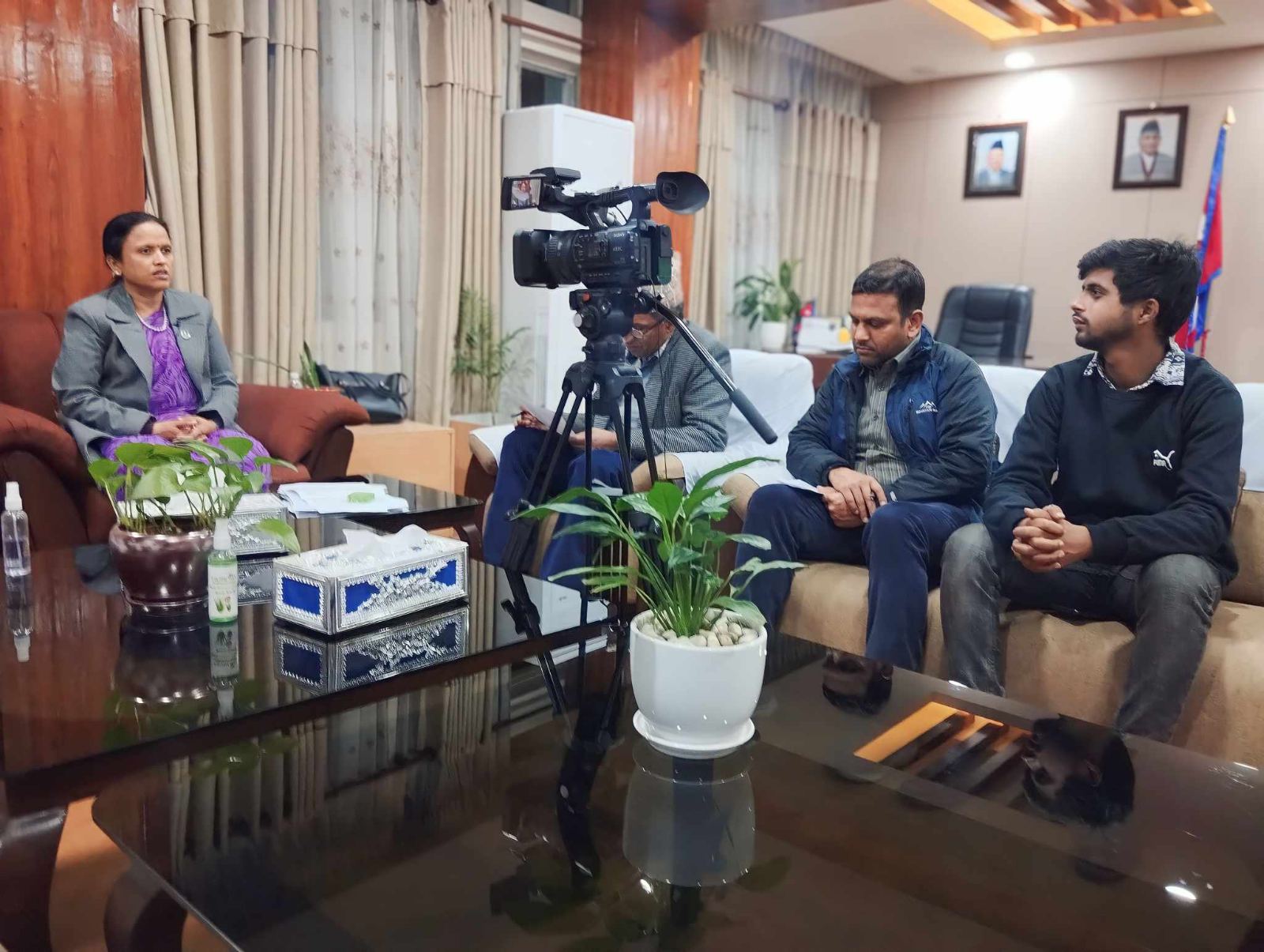
The government has been working actively for good governance, prosperity and social justice since its formation a year back. In line with the commitment made by Prime Minister Prachanda’, the government has taken firm actions to realize effective service delivery and economic prosperity. New initiatives were launched to maintain good governance. During this period, government actions on fake Bhutanese refugees, Lalita Niwas land grab, gold smuggling, loan sharking and citizenship issues were exemplary ones.
These actions are solid examples that all are equal before the law, and lawlessness is not accepted. The federal democratic republic is a people’s system and one has the right to indulge in wrong deeds. It is a further testament that anyone involved in wrongdoing faces legal action.
People were facing many hassles even for receiving common services. Farmers were deprived of chemical fertilizers in time, resulting in a decline in agro production. But, this past year saw no shortage of fertilizers and seeds, which contributed well to a historic increase in rice production. Equally worth mentioning is the availability of textbooks to students at community schools this year.
The textbooks were supplied to all schools before the start of the academic year. The compulsion of people standing in line for hours to receive a ‘No objection letter’, driving licenses, and passports also ended. The slack public service delivery has changed to ensure relief to citizens.
However, the PM, during the evaluation of the government’s one year in office, commented that the government’s performance was not up to the mark. It is his decency to admit government performance is still slow off the mark and commitment to improvement.
The government has continued efforts to protect political achievements and conclude transitional justice via national consensus. Overall, the government’s activities in the last year have made people hopeful.
What are MoCIT’s priorities in the sector of good governance and service delivery?
This Magh 3 (Jan 17) is the day I completed one year in office. The IT sector is changing every day, but laws are old to regulate new dimensions of mass communications. I attached priority to law-making. Cyber security has emerged as a new challenge, for which to address, we brought Cyber Security Policy. Even a Directive on the Use and Operation of Social Network Sites was issued. Bills on Media Council and Mass Communications are under consideration. Frequency Policy has been drafted.
The regulation relating to property management of telecommunication service providers which have not renewed licenses was amended. The Advertisement Regulation was also amended in a bid to strengthen communications by making the advertisement market transparent.
Many issues relating to the ministry and its subordinate agencies were left unaddressed for years. Some even prompted written complaints. An investigation was launched on these issues.
One among those was a complaint on tax evasion by ISPs, to which we probed. Similarly, an investigation into the non-implementation of ADMS has been concluded. These initiatives are catalysts to ensure good governance for the people. Wrongdoers are not spared; we are aware that none would be involved in breaking the rule.
Guarantee of quality IT service along with citizen’s access to service is present urgency. How is the Ministry advancing activities to minimize the ‘digital divide’?
Of course, a guarantee of quality service delivery is imperative to reduce the digital divide. The digital divide is caused due to people’s deprivation of IT access. The Ministry has forwarded together the awareness and capacity building of youths on how IT could be utilized for income generation.
Via Nepal Telecommunications Authority (NTA), various programmes as ‘Youth Tech Expo’, ‘Digital Champion were launched to entice youths to IT.
Even an IT exhibition is in the offing. We are planning to conduct nationwide IT training. Once these activities are conducted, they will certainly help reduce the digital divide.
Needless to say, IT has a significant role in service delivery. Model districts are announced via Nepal Telecom in a bid to improve IT quality and access to IT. In this regard, 19 districts including quake-hit Jajarkot and Rukum Paschim have been declared model districts and implementation units set up.
It counts much in providing service in the far-flung villages. IT infrastructures have been dubbed prerequisite to prosperity by the Ministry. High-speed internet (FTTH) has already been expanded to 74 districts. Dolpa and Humla are getting internet service within this fiscal year. Mugu is on the list for next year. The laying down of optical fibres along the Mid-Hill Highway has been intensified.
It is over in the Koshi Province; and is being completed in Sudurpaschim and Karnali Provinces soon, while Gandaki and Lumbini Provinces have witnessed legal snags with court cases. The Ministry has written to the courts, requesting them to accord prior rights to the pending cases and conclude soon. It bears significance in terms of service dispensing. The ministry is working for it.
What’s your observation on Nepal’s IT service, production and export potential?
Once the eight sectors envisioned by the Digital Nepal Framework- digital infrastructure, agriculture, health, education, energy, tourism, economy and urban infrastructures are developed, Nepal can realize huge success. Adoption of IT in these sectors will certainly ensure positive results.
However, it is worrying that the implementation status of the Digital Nepal Framework introduced in 2076BS is poor. We’re trying how it can be made effective. In a year, we can realize some changes in IT sectors.
Restructuring of state-run media has surfaced for long. How are you forwarding it?
Organizational restructuring is essential both at the ministry and its subordinate bodies. The bill relating to public service broadcasting is under discussion at the parliament committee. Once the bill is passed, Nepal Television and Radio Nepal will undergo restructuring. Restructuring is not an emotional subject. It needs certain rules.
Similarly, a draft of the Media Council bill has been forwarded to the Law Ministry for study. Consensus is being built on a draft of the Mass Communications bill. Both of these are being taken to the Cabinet.
We are planning to make Gorkhapatra and its sister publications worth reading. The Rastriya Samachar Samiti (RSS) is a news bank. RSS has recently launched a news service in the mother language.
The mother languages are gradually being included and increased in the State-run media. The RSS must be developed as a media house capable of producing news for the media in the country and abroad.
State-run media are not mere media of panegyric. They must act as bridges between the government and the people. Their role is important to share people’s problems with the government and reach the government’s good initiatives to the people.
The issue of the misuse of social sites is becoming complex, and the Ministry is taking moves to systematize it. Is this sufficient? What are the ways to relate social sites to income generation and the livelihood of citizens?
A society without the presence and use of social sites has become unimaginable now. However, the consequences of the misuse of social sites are cause for concern, and the issue should be addressed amidst these situations. The Ministry has issued a Directive on the Use and Management of Social Networking Sites in the absence of a dedicated policy regarding social sites.
The Directive highlights the dos and don’ts for social site users. The drafting of a bill to systematize social sites has neared the final phase. We wish to ensure the participation of mass stakeholders in the process of enacting laws.
On one hand, the potentiality of connecting social sites to income generation should be considered positively, while on the other hand, we have to gear up to curb their misuse.
What are the plans of the Ministry to internationalise Nepal’s identity through films?
Film, being a source of entertainment, remains one of the most effective means of communication. It is capable of reflecting the real situation of the time and can be used as a tool to convey messages to society. Nepali films should be connected to our customs, culture, and languages. First of all, they should be competitive in the internal market.
The Ministry is working to make the Film Act, 2026BS abreast with time. The role of the Nepal Film Board is vital in promoting the Nepali film industry.
If we could arrange film shooting in tourist spots, it could have a huge impact on the international film industry. The process of establishing a film city in Dolakha has been initiated. Overall, Nepal itself is like a hub for filmmaking due to its natural beauty. The Ministry plans to attract the international community to choose Nepal for cinematography and increase the quality and standards of Nepali films.
It is said that the absence of security printing at home causes a huge capital and information flight. What endeavours are the Ministry undertaking to ensure security printing facilities at home?
Security printing services should be available within the country, as it is related to the country’s prestige. Bearing in mind the cost the country faces while seeking security printing services from outside the country, a bill regarding security printing is in parliament.
Unfortunately, whatever works are carried out in security printing in Nepal, they are under the question of the regulatory bodies. We are committed to finalizing the bill in this regard as soon as possible.
What are the ways to make the postal service relevant and effective in the changing context?
The postal service cannot traditionally sustain itself. In government policies, programmes and the budget, the provision of additional post offices has been scrapped, and the concept of ‘one municipality, one post office’ has been forwarded.
The Ministry plans to provide ‘smart postal services.’ Advancements in road infrastructure, vehicles, and information technology have demanded transformations in postal services. Regulations regarding additional post offices are in the process of decision. The postal service should be enriched by IT innovations as per the needs of time.
Finally, what programmes capable of addressing people’s needs and concerns directly are the Ministry introducing ahead based on the experiences of one year in office?
The MoCIT is the body to represents the existing era and generation. Information, technology, and mass communications can influence the conscious and youth generation the most. The Ministry has its own significance. The IT sector was quite new. After one year of experience in the office, I am quite confident that this is the time for a departure in IT, and in the absence of such a departure, it would not open avenues for the prosperity of the nation.
It is necessary to have proper policies, programmes, and budget management to establish the IT sector as an indispensable part of prosperity. We have realized IT is an emergency service and the field capable of competing globally. Transformations in IT will transform people’s lives. Deliveries in IT are possible by staying within the country.
The development of the IT sector will lead to the creation of more jobs, discouragement to youth exodus for employment and encouragement to the return of those who have been abroad for career opportunities.
In the end, I expect impartial assessments of the Ministry from all quarters. I hope such evaluations will provide moral strength for the Ministry to perform more substantively in the days to come.


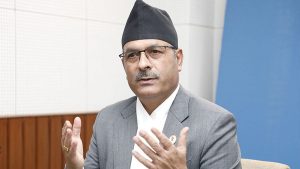


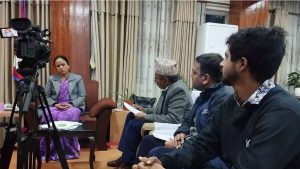
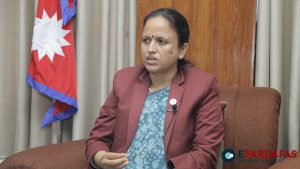
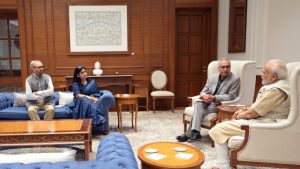





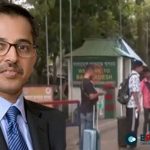
Comments